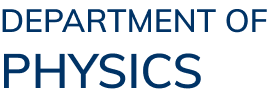Abstract
Machine learning (ML) has significant impacts on various industries and fundamental sciences. However, further development of ML is urgently needed for wider application. Physics, as one of the oldest academic disciplines, can contribute to this development by improving interpretability, developing future hardware, and proposing new models. In this thesis, we review various ML applications in physics and highlight the contributions of physics in theory and hardware for ML. Our studies in this cross-field endeavor are demonstrated by the power of physics in ML, which include presenting a fully-functional all-optical neural network based on optical components and proposing a set of new machine learning models, the deep self-learning neural networks, inspired by field theory.
